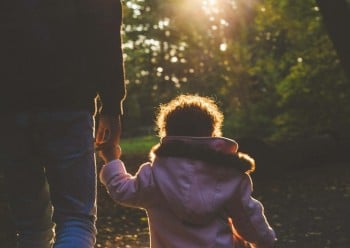When a Child Loses a Sibling
Death is a complex issue for children to work through, especially if they are too young to grasp the implications. Even though they may not realize what it means for a brother or sister to die, that does not mean they are unaware of the changes that occur in a family as a result. For example, a parent who loses a child is likely to withdraw and experience extreme forms of grief. This, quite understandably, can impact the surviving children so that they not only lose a sibling, but they lose part of their parent, too.
Although every child and every family situation is different, grief in the very young can take the shape of sadness, anger, guilt, fear, and frustration. Many of these translate to acting out or doing poorly in school and other social situations, especially if the child cannot fully articulate his or her feelings.
Countless resources, support books, websites, and guides exist to help families struggling to get over the loss of a child. For those outside the immediate family, there are also other ways to help. Although you cannot “fix” the loss of a sibling, you can provide the surviving child with support. Here are a few ways how:
- Acknowledge the Child’s Loss: Often, a parent’s grief overshadows that of a child’s. Take the time to acknowledge that the child has suffered a major loss and that their grief matters. This can be as simple as expressing your condolences in person.
- Allow the Child to Talk: For many parents, talking about a child who has died is extremely painful. But for children, memories and “healing talk” can sometimes help them work through feelings. Giving them a safe space to discuss their sibling and their thoughts could be one of the greatest gifts.
- Prepare for a Range of Emotions: Children who have lost a sibling may veer wildly from one mood to the next, or act in ways that they have not acted before. Be more understanding and patient than you are accustomed to, especially for the first few months. Remember, however, that this type of acting out should never endanger anyone’s safety (including that of the child).
- Remember Holidays: Birthdays and holidays are difficult for a family that has experienced a loss, but this is especially true for children. Much of the magic of these days is gone when they are overshadowed by grief. Ask the family if there is anything you can do to make the holidays special for the child so they don’t lose that, too.
- Don’t Forget to Play: Children of all ages need healthy play time in order to develop their bodies and brains. Giggles and games may feel wrong so soon after a loss, but they still matter to the young. Even if it is painful, try to carve out time where the surviving siblings are allowed to forget their grief and simply be kids.
Above all else, work with a psychologist or therapist to ensure a child has the most support possible. Because grief can often take many forms—or even develop over time—it is best to have professional help on hand.



